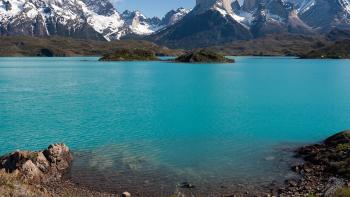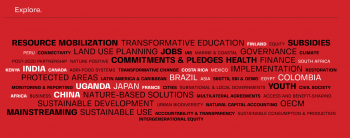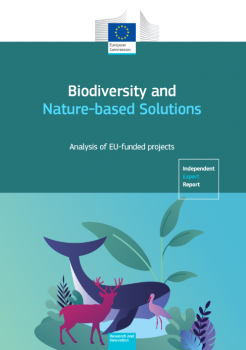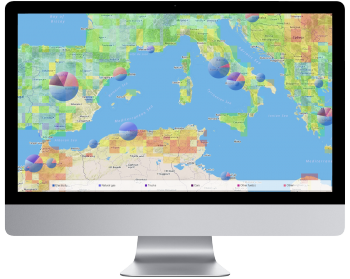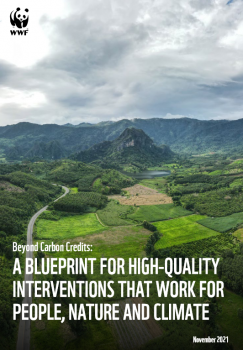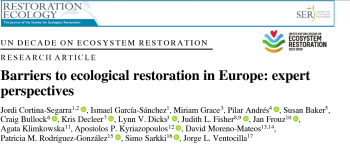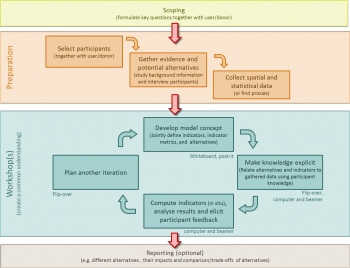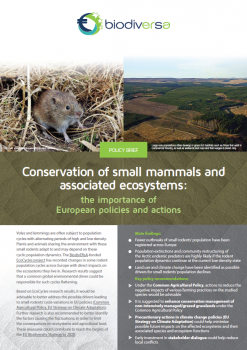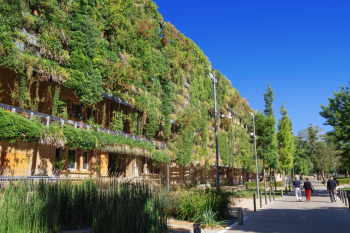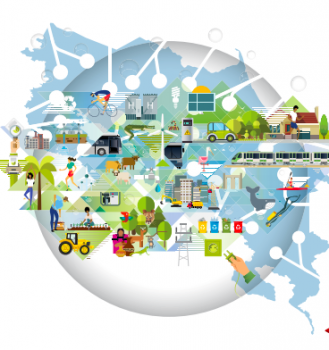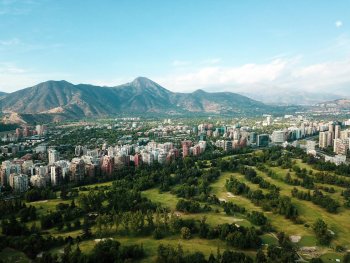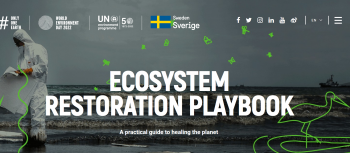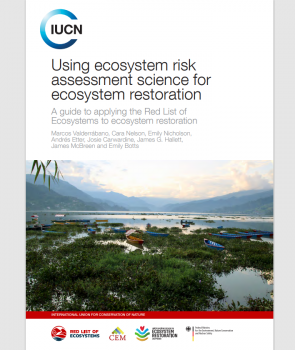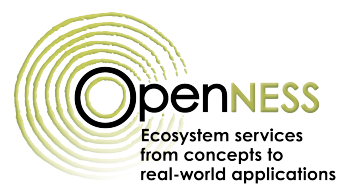Marketplace
Experimental Biodiversity Accounting as a component of the System of Environmental-Economic Accounting Experimental Ecosystem Accounting (SEEA-EEA)
The System of Environmental-Economic Accounting 2012 Experimental Ecosystem Accounting (SEEA-EEA) provides a framework to measure and link ecosystem service flows supported by biodiversity and other ecosystem characteristics (e.g. soil type, altitude) with the economy and other human activities.
A new evaluation framework for nature-based solutions (NbS) projects based on the application of performance questions and indicators approach
One of the key features of nature-based solutions (NBSs) is their high effectiveness and economic and resource efficiency in solving problems compared to traditional grey interventions. These aspects, however, have so far attracted little attention in the literature but should be considered, as the
Website: Post 2020 Biodiversity Framework EU Support
Explore the resources of Post 2020 Biodiversity Framework - EU Support website to keep up to date on the agenda and learn from a wealth of scientific resources about biodiversity.
Biodiversity and nature-based solutions: Analysis of EU-funded projects
The EU Biodiversity Strategy for 2030 aims to secure healthy, resilient, biodiversity-rich ecosystems that deliver the range of services essential to the prosperity and well-being of citizens. Nature-based Solutions (NbS) – with healthy and biodiverse ecosystems at their core - are central to
Ecometrica Platform
The Ecometrica Platform brings together sustainability, environment, risk and business management with geospatial intelligence and mapping applications to allow businesses, governments and organisations to make smarter decisions and build long-term value. The Platform is arranged into four
Beyond Carbon Credits: A BLUEPRINT FOR HIGH-QUALITY INTERVENTIONS THAT WORK FOR PEOPLE, NATURE AND CLIMATE
This document sets out WWF’s views on implementing high-impact and high-quality nature-based solutions for climate mitigation from the perspective of the people and the places where we work, as a companion to WWF’s Blueprint for Corporate Action on Climate and Nature, which focuses on business-
Barriers to ecological restoration in Europe: expert perspectives
Ecological restoration is key to counteracting anthropogenic degradation of biodiversity and to reducing disaster risk. However, there is limited knowledge of barriers hindering the wider implementation of restoration practices, despite high-level political priority to halt the loss of biodiversity
Ready 4 Climate Change
Quick check tool to activate stakeholders and their knowledge on climate change adaptation.
Method Factsheet - Quickscan
The QUICKScan software and QUICKScan tool (http://QUICKScan.pro) encompasses a modelling environment with functionalities to assess societal and environmental conditions, diagnose patterns and interactions, implement alternative responses and evaluate the impacts of those responses. The QUICKScan
Conservation of small mammals and associated ecosystems
The “Conservation of small mammals and associated ecosystems” policy brief is focusing on the importance of European policies (for example, the Common Agricultural Policy, the EU Strategy on Climate Adaptation) and actions in the context of the conservation of small mammals and other species which
Nature-Based Solutions Business Model Canvas
Connecting Nature has customised the well-known business model canvas tool specifically to help plan the business models for nature-based solutions. The Nature-Based Solutions Business Model Canvas is an easy-to-use tool to help you capture in a visual format the business model of your Nature-Based
National decarbonisation plan: Government of Costa Rica
The National Decarbonization Plan is a response to the request of the President of the Republic of Costa Rica, Mr. Carlos Alvarado Quesada, to prepare a strategic document that would offer a Roadmap with key actions to consolidate the process towards the decarbonization of the Costa Rican
CLEVER Cities Guidance
CLEVER Cities Guidance: a platform to explore insights, tools, indicators and lessons learned about nature-based solutions (NbS) for sustainable urban regeneration. We provide evidence-based approaches, innovative case studies and lessons learned on policy, co-creation, and social impact.
- Document
The ARCHI method: a tool for diagnosing the vitality of trees
ARCHI method is focused on the architecture of a tree, as a real biological signature of its vitality, that must constantly be evaluated with different physiological states
Connecting Nature Enterprise Platform
The Connecting Nature Enterprise Platform (CNEP) was launched in October 2020 as a direct response to addressing a significant bottleneck where cities and developers seeking to implement NbS voiced their difficulty in finding and sourcing skilled suppliers of NbS. Developed as a marketplace to
CONEXUS Policy Brief 7 - Integrating Nature-Based Solutions in Planning Instruments
The Regional Government of Santiago (RGS) aims to incorporate ecological planning criteria into its planning instruments and strategies, fostering a more resilient and equitable city-region. This policy brief outlines the city’s learning-by-doing approach, presenting three pilot projects of Nature-
The Cities and Biodiversity Outlook - URBES Factsheet #4
This Factsheet highlights some of the mian highlights from the Cities and Biodiversity Outlook - the first scientific assessment of how global urbanization trends affect biodiversity and ecosystem dynamics. It explains how biodiversity and ecosystem services can be managed and restored in
Ecosystem Restoration Playbook: A practical guide to healing the planet
People and the planet are only as healthy as the ecosystems we all depend on. Bringing degraded ecosystems back to life – for example by planting trees, cleaning up riverbanks, or simply giving nature space to recover – increases their benefits to society and biodiversity. Without reviving
Using ecosystem risk assessment science in ecosystem restoration
Recent global initiatives in ecosystem restoration offer an unprecedented opportunity to improve biodiversity conservation, human health and well-being. Ecosystems form a core component of biodiversity. They provide humans with multiple benefits – a stable climate and breathable air, water, food
OpenNESS Synthesis paper: Good governance
Governance of ecosystem services (ES) and natural capital (NC) is one of the four major challenges addressed by OpenNESS. The term governance indicates a mode of steering that differs from state-centred top-down command-and-control approaches, as it is marked by the inclusion of a variety of actors
- ‹ previous
- 6 of 45
- next ›

